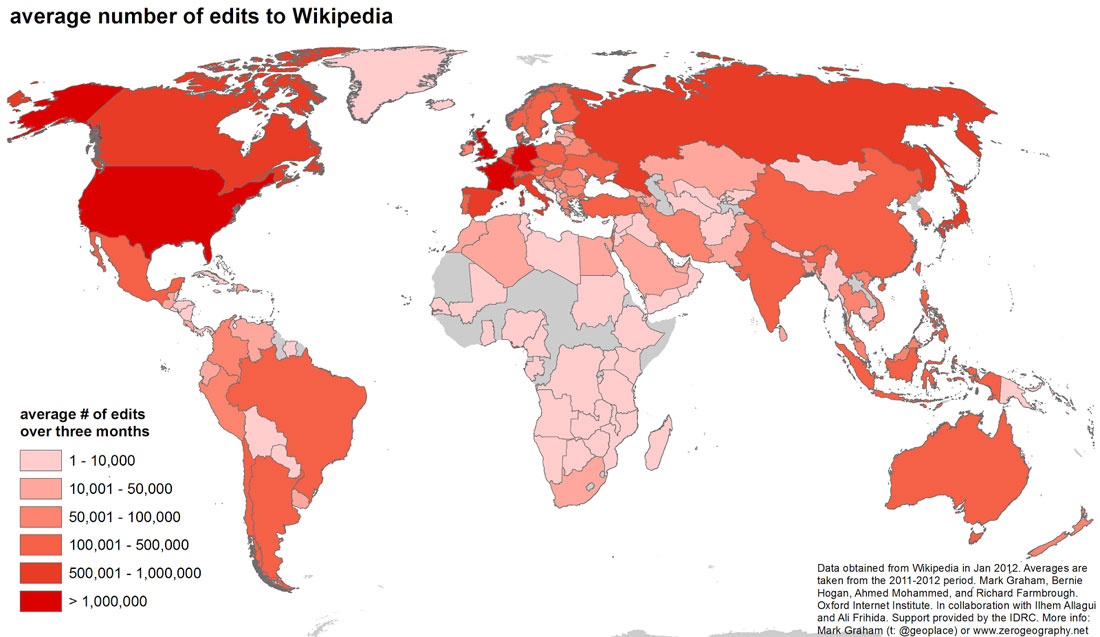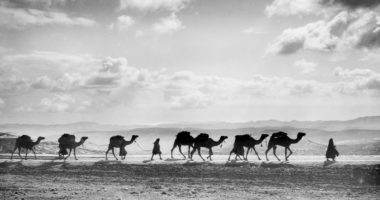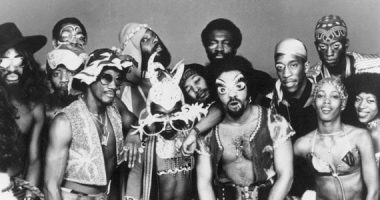
Pixabay. CC0 Domini Públic.
The exhibition Making Africa invites us to reflect on how little we know about Africa, and on the fact that we have historically looked at the continent from a Western or Eurocentric perspective, through our own categories and codes. What do we actually know about Africa? Who talks to us? How and why do they do it? Why don’t we know more? How do we look at it?
Questioning the Map
A map is a symbolic representation that draws attention to the relationships between elements within a surface or a space. For many years, the map of Africa was described and drawn under the influence of European or Western colonialism. This gave rise to a historical bias in the way we see the continent and the way we approach a reality that has been presented to us as very remote: Europe as a frame of reference that determines and defines other codes, other categories, other realities. Africa as the “other”, as a share of alterity. As everything that we are not: as that which helms us to define ourselves.
Humans use contradictory geographic and conceptual divisions, in line with our interests. We refer to the concept of “Europe” as the humanist continent par excellence, placing ourselves at the centre of knowledge, with inevitable consequences on our mental map of the rest of the world. Similarly, we often say “America” when we mean the United States, and create subsets like “Latin America”, the “Arab World”, “Black Africa” and the “Catalan Countries” to talk about countries or territories with a shared language or culture. But we don’t use concepts like the “Christian Countries”. Why not? Another interesting example is the change in the way we use the word “Mediterranean”, which used to refer to a centre, and is now employed to refer to a border. A conceptual shift from the Mediterranean as a cradle of civilisations, uniting three continents as one, to the use of the term to define the shoreline of Southern European countries, in comparison to Nordic countries, and even to refer to a border separating us from a world other than our own.
We even use asymmetrical concepts such as Global North and Global South, in which Australia happens to form part of the Global North while China falls into the South. These concepts and others such as “developing countries”, “emerging countries”, and “third world” only contribute to creating a hierarchy in which other parts of the world are placed in different categories, on other levels, where interaction as equals becomes more difficult. These terms more or less inappropriate ways of of avoiding the use of the word “inferior”.
That said… how and when do we refer to the concept of Africa? Can Africa be approached as one whole? Is it appropriate to talk about Africa as a cultural, geographical, or economic unit? If a syntagm is a word or phrase that form a meaningful syntactic unit at the moment that it is written or spoken, we cannot say that Africa behaves as one. Neither as a homogeneous division nor as a unit of knowledge. There are clear cultural, linguistic, and economic differences among the different communities that live in Africa. One characteristics that most African countries do have in common is their colonialist legacy, either as heirs or victims of the same past. Africa is a system made out of elements that interact among each other, and in order to understand it we have to examine these relationships and how they affect the whole, which takes on a meaning beyond the sum of its parts.
So let us rethink the map. Let us question it. Given that all important words are polysemic, let us think about what meaning we or others intend when using the term “Africa”.
Rethinking history
As Nigerian feminist activist Oyèrónkẹ́ Oyěwùmí says, the modern age was marked by a series of historical processes, including the European colonisation of Africa, Asia, and Latin America. This process stimulated the development of capitalism and industrialisation, and also the consolidation of nation-states, the increase of regionally inequalities within the international system, and the stratification of the world’s population based on race and gender, leading to a global European-American hegemony.
Africa’s history has been defined and told from the perspective of the West, creating a clear bias in the way we see the continent. The Western narrative concerning African has focused on a historical vision of a “needy” continent, rather than on Africa’s contributions to the history of humanity. Africa is clearly subject to systemic bias: it is under-represented from the point of view of participation, content, and perspective, which means that our starting point is an erroneous a priori model. In order to get around this, we need to increase the number of voices who talk about and from Africa, as well as its contextualisation within global discourse. And we should de this while avoiding superficial quotas or paternalist approaches, recognising valid interlocutors, with a sincere acceptance of the other. This realisation has led some theorists to argue in favour of the decolonisation of knowledge. In 1984, Nigerian writer Chinua Achebe defended this idea in an interview in which he quoted an African proverb that is included in the CCCB exhibition: “until the lions have their own historians, the history of the hunt will always glorify the hunter.”
But Western systems of social and knowledge managements are very inflexible, and the academic world only accepts the existence of other groups if they adapt to their own ideas and methodologies. Unfortunately, we often see multiculturalism or integration in term of other groups adapting to our canon.
So how can we make it possible for African institutions to contribute to the global canon without being assimilated? Is the concept of the canon even relevant today? Is it right that African universities should be able to talk about local content but not be considered as valid to talk about science? Would a scientific journal published at the University of Nairobi have the same weight as one published at Harvard? How can we relate to other forms of knowledge, including those which don’t have a written tradition? What elements really favour epistemological exchange? As we can see, there are still many questions that need answers.

There are over a hundred times more georeferenced Wikipedia articles on France than on the whole of Africa. And only 25% of content on Sub-Saharan Africa is edited there.
The dual perspective
Along these lines, Oyěwùmí makes some very interesting reflections on gender analysis from an African perspective, challenging some pre-established Western assumptions.. She questions the very dichotomy between man and woman, for example, linking it to the central role of the nuclear family in European culture as a specific space in which the woman’s role has been historically predefined, and where women fight for liberation. Oyěwùmí provides this necessary double perspective, showing that our reality is not the only reality possible, and our categories are not the only categories possible. She describes examples of different systems of social and family organisation in different African communities, where, historically, the role of women has little to do with the role of women in the West.
Another example, this time from the Arab world, is the Spanish-Syrian Arabist researcher Sirin Adlbi Sibai, who studies Islamic feminisms and offers an overview of the situation, while suggesting the creation and development of a decolonical Islamic discourse. Sirin Adlbi Sibai shows us a different way of seeing Islam, particularly Islamic women, based on the premise that contemporary Islamic thought is also influenced by the classic forms of power imported from Western modernity. She also points out that intercultural dialogue will continue to be difficult if we in the West assume that our own categories are universal and insist on using them to try and understand other cultures and other value systems.
In the midst of the current identity crisis, Europe needs Africa more than ever. We are in the process of reaffirming and questioning ourselves, but we are strengthening our own codes and denying the rest, building walls and boundaries that delimit our identity. By trying to turn Europe into a safe space in this way, the rest of the world becomes, by definition, not safe. This awareness of our own fragility has given rise to populisms that are on the threshold (or already inside) several European parliaments, with identity discourses that reject and criminalise the other for being different.
One way of fighting this discourse of fear is to learn more about the other. As Carlos Bajo explains in an interesting article in this same blog, the internet and social media are leading thousands of African voices to speak up and claim their share of attention. Hundreds of groups and collectives have sprung up, carrying out political and social actions in order to dismantle the current status quo in different African countries. After centuries of silencing them, the least we can do now is lend an ear. We can all increase the diversity and the number of voices we absorb every day on our timelines, and try to find this necessary dual perspective. Africa as a mirror that addresses, defines, and questions us.
Bibliography
- Amaechi Udefi, Cornelius, The Rationale for an African Epistemology: A Critical Examination of the IgboViews on Knowledge, Belief, and Justification, University of Ibadan, Nigeria (Canadian Social Science, 2014 ISSN 1923-6697)
- Oyeronke Oyewumi, Els fonaments eurocèntrics dels conceptes feministes i el repte de l’epistemologia africana, (Catalan) Dones+Àfriques. Centre de Documentació Virtual
- The African Gap, Wiki Loves Women.





Estela Tuku Carvalho | 19 May 2020
Me ha gusado mucho! La necesidad de ir generando una mirada decolonial
Leave a comment